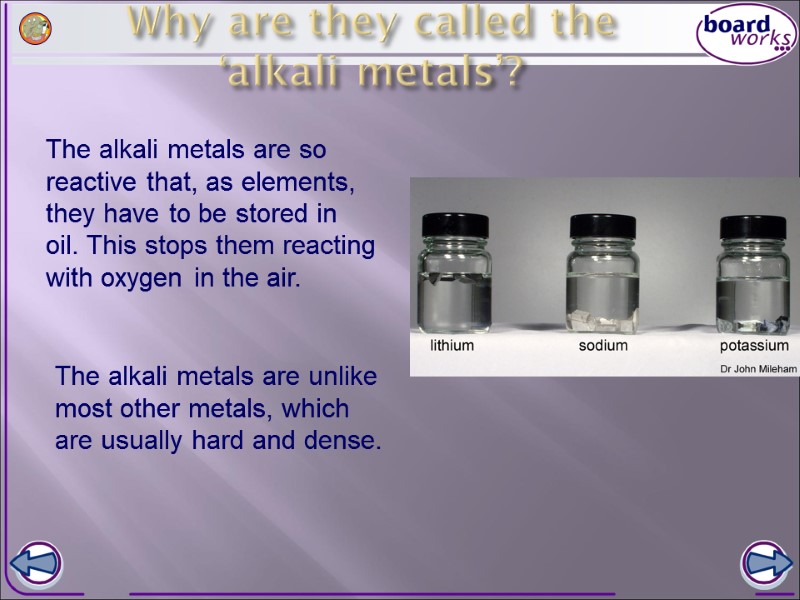Some alkali metals like potassium sodium and lithium are so reactive that they explode when they get wet

Some Alkali Metals Explode When They Get Wet

Alkali metals such as potassium, sodium, and lithium are well-known for their extreme reactivity. These elements can be so reactive that they actually explode when they come into contact with water. This fascinating and potentially dangerous behavior is due to the unique properties of these metals.

When alkali metals are exposed to water, a violent reaction occurs. The reaction happens because these metals have only one electron in their outermost energy level, making them highly prone to losing that electron and forming positive ions. As water molecules are made up of oxygen and hydrogen, which carry a partial negative and positive charge respectively, they can easily interact with alkali metals.
As soon as an alkali metal is submerged in water, the metal’s outer electron is immediately attracted to the partial positive charge of the hydrogen in the water molecule. This attraction is so strong that the electron rapidly leaves the metal and associates with the hydrogen atom. This process generates a highly explosive reaction.
The reaction between alkali metals and water is so exothermic that it releases a substantial amount of heat and generates hydrogen gas. The heat released ignites the hydrogen gas, resulting in a spectacular explosion. The explosion is often accompanied by a bright flame and a loud bang, making it a visually stunning demonstration.
Due to the extreme reactivity of these metals, it is crucial to handle them with caution. They should always be stored in a moisture-free environment to prevent accidental contact with water. Additionally, safety procedures must be followed strictly when conducting experiments or demonstrations involving alkali metals and water.
The explosive reaction of alkali metals with water has important implications in various fields of study. For example, scientists and engineers must consider the potential hazards associated with alkali metals when developing technologies that involve water, such as fuel cells. Understanding the behavior of these metals allows researchers to find ways to control and mitigate their reactivity.
In conclusion, alkali metals like potassium, sodium, and lithium possess a unique property: they explode when they get wet. This explosive behavior is a consequence of their extreme reactivity and the rapid reaction between the metals and water. It is crucial to handle these metals with utmost care and take necessary precautions to prevent accidents. Studying the explosive nature of alkali metals provides valuable insights into their behavior and helps in ensuring safety in various scientific and industrial applications.
Source: Science News for Students
Related Posts
Quick Links
Legal Stuff

